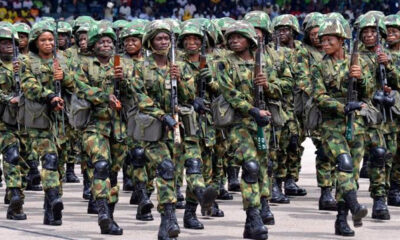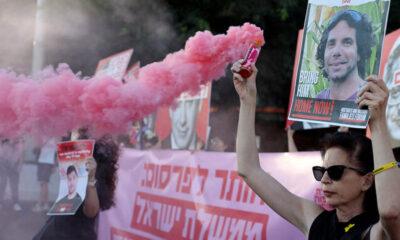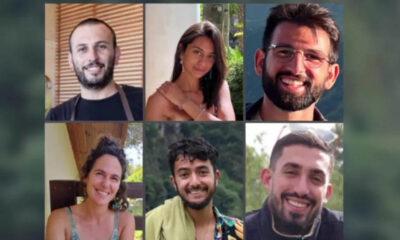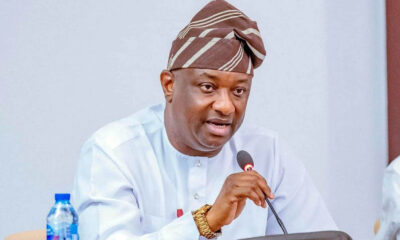International
Kuwait flight hostages sue British Airways, UK govt
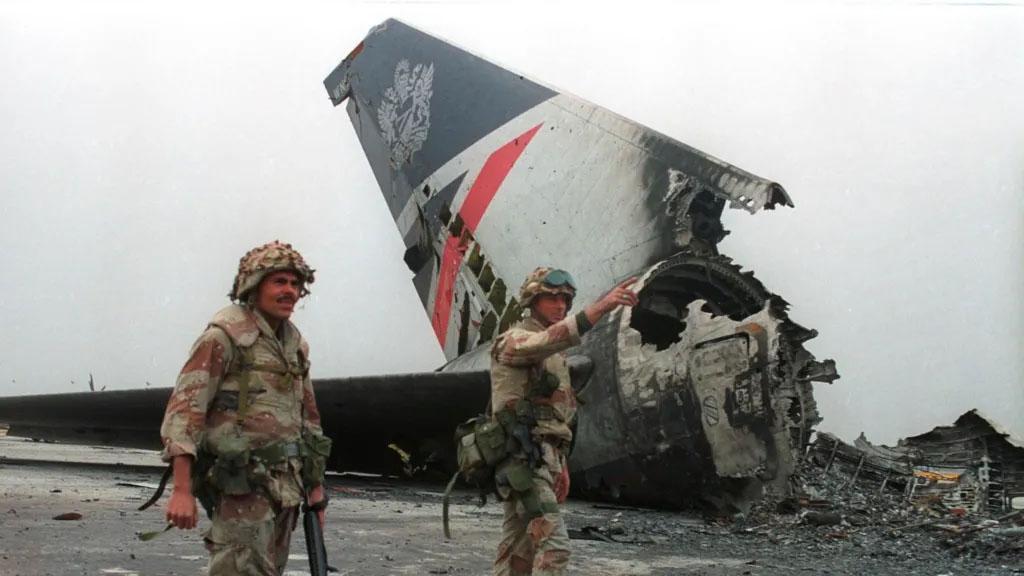
Kuwait flight hostages sue British Airways, UK govt
Passengers and crew held hostage after a 1990 British Airways flight landed are suing the airline and the UK government for “deliberately endangering” them.
They claim BA and the government knew Iraq had invaded Kuwait before the plane they were travelling on landed in the country.
The 367 passengers and crew of BA Flight 149 were taken hostage, and some were mistreated, seriously sexually assaulted and kept in near-starvation conditions.
The claimants believe those on board were put at risk so an intelligence-gathering mission could take place, an allegation which has been denied for 30 years.
Ninety-four people, either passengers or crew on board Flight 149 or BA crew already in Kuwait awaiting deployment, are behind the civil action alleging the UK government and BA were guilty of negligence and joint misfeasance in public office.
It is the latest step in a long battle to get answers as to what happened during Iraq’s invasion of Kuwait in 1990.
On the evening of 1 August 1990, BA Flight 149 took off from London’s Heathrow Airport with a planned stop in Kuwait on its way to Malaysia.
Iraqi troops were already massing on the border with Kuwait ahead of an invasion of the country that night. But the flight was not diverted from stopping in Kuwait.
The claimants say no other airline allowed its planes to land after the invasion began. By the time Flight 149 landed on the morning of 2 August, there was rocket fire near the airport as Iraqi forces took control.
READ ALSO:
- BREAKING: Pilot survives as NAF helicopter crashes in Kaduna
- UK cab driver confesses still getting paid in Nigeria as civil servant
- Police rescue 2 kidnapped victims in Abuja
The plane was evacuated and unable to take off. Those on board were taken hostage.
Some were released quickly, but others suffered mistreatment and were used by Iraq as human shields at key facilities to try to prevent Western forces bombing them.
Passengers and crew held hostage after a 1990 British Airways flight landed are suing the airline and the UK government for “deliberately endangering” them.
They claim BA and the government knew Iraq had invaded Kuwait before the plane they were travelling on landed in the country.
The 367 passengers and crew of BA Flight 149 were taken hostage, and some were mistreated, seriously sexually assaulted and kept in near-starvation conditions.
The claimants believe those on board were put at risk so an intelligence-gathering mission could take place, an allegation which has been denied for 30 years.
Ninety-four people, either passengers or crew on board Flight 149 or BA crew already in Kuwait awaiting deployment, are behind the civil action alleging the UK government and BA were guilty of negligence and joint misfeasance in public office.
It is the latest step in a long battle to get answers as to what happened during Iraq’s invasion of Kuwait in 1990.
On the evening of 1 August 1990, BA Flight 149 took off from London’s Heathrow Airport with a planned stop in Kuwait on its way to Malaysia.
Iraqi troops were already massing on the border with Kuwait ahead of an invasion of the country that night. But the flight was not diverted from stopping in Kuwait.
The claimants say no other airline allowed its planes to land after the invasion began. By the time Flight 149 landed on the morning of 2 August, there was rocket fire near the airport as Iraqi forces took control.
READ ALSO:
- Gunmen abduct 20 travellers along Sagamu-Ijebu-Ode expressway
- Saudi club Al-Ittihad woo Ademola Lookman with €11m salary
- Six Palestinians killed as Israeli forces pound southern, northern Gaza
The plane was evacuated and unable to take off. Those on board were taken hostage.
Some were released quickly, but others suffered mistreatment and were used by Iraq as human shields at key facilities to try to prevent Western forces bombing them.
At the centre of the claim is the allegation the UK government and BA received a series of warnings during the night but did not act on them.
It is alleged that one reason for this was the desire of the government to insert a special forces team who could carry out reconnaissance within the country.
Stephen Davis wrote a book about the incident and says he has interviewed members of the team anonymously.
He believes the authorities did not expect the airport to fall to invading Iraqi forces so quickly and the intention was for the men to disembark before the plane went on to its next destination.
The BA cabin services director on the flight previously told the BBC that a British man in military uniform greeted him at the plane’s door on arrival in Kuwait.
The man said he had come to meet 10 men on the flight who had boarded at Heathrow. They were brought to the front, disembarked and were never seen again. But by then, it was too late for the plane to leave.
A UK official serving in the Kuwait embassy at the time previously said he believed there had been a “deniable” operation to hastily put boots on the ground without the full knowledge of the embassy.
Anthony Paice was responsible for political intelligence, a role widely assumed to be cover for MI6.
“I am convinced that the military intelligence exploitation of British Airways Flight 149 did take place, despite repeated official denials,” he told the BBC in his first interview in 2021.
In November 2021, the Foreign Office admitted that Parliament and the public were misled for decades about Flight 149.
Newly released files revealed the British ambassador in Kuwait did warn the Foreign Office about the invasion, but BA was not told.
However, then-Foreign Secretary Liz Truss reiterated earlier denials that the flight was being used for a secret intelligence mission.
“There must be closure and accountability to erase this shameful stain on the UK’s conscience,” said Matthew Jury, from the law firm behind the claim, McCue Jury and Partners.
A Cabinet Office spokesperson said the government did not comment on ongoing legal matters. BA did not respond to a request for comment.
Kuwait flight hostages sue British Airways, UK govt
BBC
International
UK visa: British govt raises financial requirements for students, workers

UK visa: British govt raises financial requirements for students, workers
International students and skilled workers applying for visas to the United Kingdom will face higher financial requirements beginning January 2, 2025.
These changes, announced by the UK government, require applicants to show more money in their bank accounts to cover living expenses during their stay.
These updated regulations affect those hoping to study or work in the UK, with new financial thresholds set for students and skilled workers.
These changes are aimed at ensuring that applicants have the necessary financial resources to support themselves during their time in the UK.
Increased financial requirements for students
International students seeking a UK study visa will now need to show higher amounts of money to cover their living expenses. For students attending courses in London, the required amount is £1,483 per month, while students studying outside London will need to show £1,136 per month, TravelBiz reports.
READ ALSO:
- EFCC will bring down towers of corruption this year – Olukoyede
- Two online scammers arrested in Rivers for defrauding woman of N110m
- I stand by my comments – Bauchi gov replies Presidency
For a typical one-year master’s program, students must show £13,347 if studying in London, and £10,224 for those outside London. The funds must be held in the applicant’s bank account for at least 28 consecutive days before submitting the visa application.
Comparison with current financial requirements
According to reports, currently, the financial requirements are lower. For students in London, the monthly amount is £1,334, while those studying outside London need to show £1,023 per month. Under the new rules, these amounts will increase, placing additional financial burdens on prospective students.
Changes to skilled worker visa financial requirements
Skilled workers applying for a visa to the UK will also face new financial thresholds. According to reports, to qualify for a skilled worker visa, applicants must have an annual income of at least £38,700 to cover living expenses and accommodation. In addition, applicants must secure sponsorship from an employer approved by the Home Office.
Like student applicants, skilled worker visa applicants must demonstrate that they have the required funds in their account for at least 28 consecutive days before submitting their application if they do not have employer sponsorship.
Updated UK visa fees and exemptions
Visa application fees for 2025 have been revised to reflect inflation and improved services. The new fees for various visa categories are as follows:
- Short-term Visit (6 months): $153
- Long-term Visit (2 years): $573
- Long-term Visit (5 years): $1,023
- Long-term Visit (10 years): $1,277
- Skilled Worker Visa: $827
- Student Visa (Outside UK): $647
- Parent of Student Child Visa: $845
Priority visas are priced at $550, while super-priority visas cost $1,050. However, certain groups such as individuals with disabilities, carers, and professionals in specific sectors like healthcare, the armed forces, and talent-based roles will continue to benefit from fee waivers.
The 28-day rule for financial documentation
A key new regulation is the “28-day rule”. Applicants must ensure that the required funds remain in their bank account for at least 28 consecutive days, without dipping below the required amount.
Bank statements or certified letters submitted as part of the financial documentation must show that the closing balance is no older than 30 days when the visa application is submitted. Failure to comply with this rule may result in visa rejection
UK visa: British govt raises financial requirements for students, workers
International
Moscow attacks Ukraine with drones, missiles
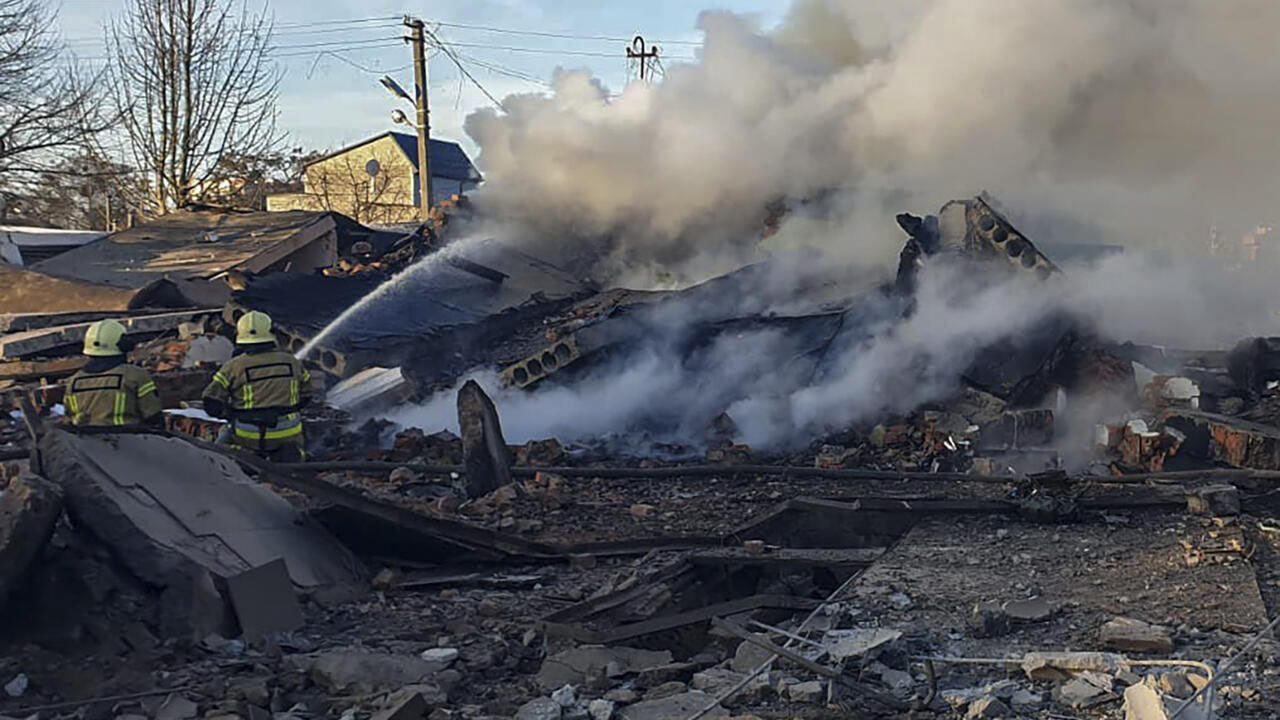
Moscow attacks Ukraine with drones, missiles
Kyiv said Tuesday that Russia had launched a barrage of drones and missiles across Ukraine, conceding that there were successful strikes in the east of the country and near the capital.
Authorities did not elaborate on what had been hit but in the wider Kyiv region, the governor said debris from a downed projectile had damaged a private home and wounded a woman.
Moscow said its forces had used attack drones and precision weapons in a “combined” assault on a military airfield and a munitions production facility, claiming that the targets were struck.
READ ALSO:
- Wanted terrorist commander, Bello Turji, a dead man walking – DHQ
- Court orders forfeiture of $49,700 linked to former INEC official
- DSS arrests activist Shehu Mahdi over post on French military base
The Ukrainian air force said Russia had launched 21 missiles of various types and 40 drones in the barrage, adding that seven missiles and 16 unmanned aerial vehicles were downed.
“As a result of the Russian attack, there were ballistic missile hits in Sumy and Kyiv regions,” the air force said.
Russia has launched aerial attacks on Ukraine at night almost every day since its forces invaded in February 2022, targeting military and civilian infrastructure, too, like energy facilities.
Ukraine has stepped up its own drone and missile attacks inside Russian territory in response, and urged its Western allies to supply more air defence systems.
A Ukrainian drone attack in western Russia caused a fuel spill and fire at an oil depot, a Russian regional governor said earlier Tuesday.
Moscow attacks Ukraine with drones, missiles
International
Catholic priest sentenced to 11 years for criticising his president
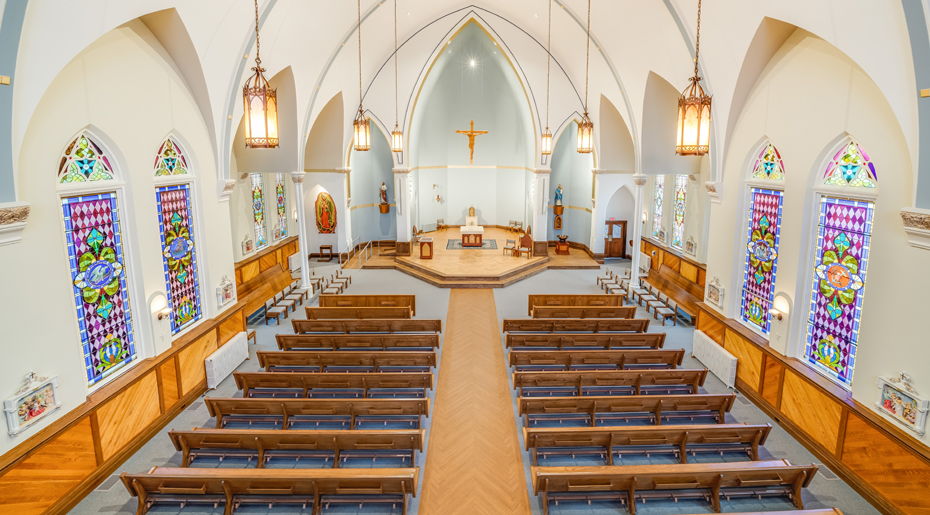
Catholic priest sentenced to 11 years for criticising his president
A Catholic priest in Belarus on Monday was convicted on charges of high treason for criticising the government and handed an 11-year sentence, in the first case of politically-driven charges against Catholic clergy since Belarus became independent after the Soviet Union collapsed in 1991.
The conviction and sentencing of Rev. Henrykh Akalatovich comes as Belarusian authorities have intensified their sweeping crackdown on dissent ahead of the Jan. 26 presidential election that is all but certain to hand authoritarian President Alexander Lukashenko a seventh term in office.
The Viasna Human Rights Centre said Akalatovich, 64, rejected the treason charges. The group has listed him among 1,265 political prisoners in the country.
“For the first time since the fall of the Communist regime, a Catholic priest in Belarus was convicted on criminal charges that are levelled against political prisoners,” said Viasna’s representative Pavel Sapelka. “The harsh sentence is intended to intimidate and silence hundreds of other priests ahead of January’s presidential election.”
Akalatovich, who has been in custody since November 2023, was diagnosed with cancer and underwent surgery just before his arrest. The priest from the town of Valozhyn in western Belarus, who was critical of the government in his sermons, has been held incommunicado, with prison officials turning down warm clothing and food sent to him.
Arkatovich is among dozens of clergy — Catholic, Orthodox and Protestant — who have been jailed, silenced or forced into exile for protesting the 2020 election that gave Lukashenko a sixth term. The disputed vote that the opposition and the West said was marred with fraud triggered mass protests,. The authorities then responded with a sweeping crackdown that saw more than 65,000 arrested and thousands beaten by police.
Catholic and Protestant clergy who supported the protests and sheltered demonstrators at their churches were particularly targeted by repressions. Belarusian authorities openly seek to bring the clergy into line, repeatedly summoning them for “preventive” political talks, checking websites and social media, and having security services monitor sermons.
While Orthodox Christians make up about 80% of the population, just under 14% are Catholic and 2% are Protestants.
Lukashenko, who has ruled Belarus for nearly 30 years and describes himself as an “Orthodox atheist,” lashed out at dissident clergy during the 2020 protests, urging them to “do their jobs,” and not fuel unrest.
Lukashenko is one of Russian President Vladimir Putin’s closest allies, allowing Russia to use his country’s territory to send troops into Ukraine in February 2022 and to deploy some of its tactical nuclear weapons in Belarus.
Catholic priest sentenced to 11 years for criticising his president
-

 Politics3 days ago
Politics3 days agoGbajabiamila speaks on his rumoured Lagos governorship ambition
-

 metro3 days ago
metro3 days agoFarotimi to pursue disbarment over arrest, defamation allegations
-

 Business2 days ago
Business2 days agoReal reason Dangote, NNPC drop petrol price — IPMAN
-

 Health2 days ago
Health2 days agoABU Teaching Hospital will begin kidney transplant in 2025 – CMD
-

 Sports1 day ago
Sports1 day agoAnthony Joshua prostrates before Governor Abiodun during Ogun visit
-

 metro3 days ago
metro3 days agoEl-Rufai accuses Tinubu govt of Yoruba agenda, Reno Omokri reacts
-

 metro3 days ago
metro3 days agoNigerian govt urged to intervene in Mozambique post-election violence
-

 metro3 days ago
metro3 days agoAdeleke presents staff of office to new Owa-Obokun amid protest

